This is an ongoing list of Stanford Bio-X affiliated faculty who have expressed interest in hosting and mentoring a fellow through the Bio-X/Novo Nordisk Foundation Visiting Scholar or Visiting Postdoc Fellowship Program. Applicants can also check the entire list of Bio-X affiliated faculty to search for faculty of specific research fields. Please reach out to Bio-X if you have any questions or need help during this process.

Raag Airan - Assistant Professor of Radiology (Neuroimaging) and (by courtesy,) of Psychiatry and Behavioral Sciences
Research interests: The Airan Lab develops and clinically translates novel techniques for targeting drug delivery to the nervous system, largely using focused ultrasound. The current focus of the effort centers around the development, validation, and clinical translation of a nanoparticle system for ultrasound-targeted delivery of a variety of therapeutic agents including small molecule drugs, proteins, and viruses. Check out the lab website!

Eric Appel - Assistant Professor of Materials Science and Engineering
Research interests: The Appel Lab at Stanford University integrates concepts and approaches from supramolecular chemistry, natural/synthetic materials, and biology to develop supramolecular biomaterials that can act as tools to better understand fundamental biological processes and to engineer advanced healthcare solutions. We focus heavily on developing technologies for precisely controlled delivery of molecular cargo that can form the backbone of new drug products to improve the treatment of diseases such as diabetes or to engineer more potent and safe vaccines and immunotherapies for cancer. Check out the lab website!

Euan Ashley - Professor of Medicine (Cardiovascular), of Genetics, of Biomedical Data Science and (by courtesy) of Pathology
Research interests: The Ashley lab is focused on the science of precision medicine. We study the human genome and apply computational approaches like machine learning to understand the integrated effects of genes and proteins on human health and disease. We are particularly interested in the extremes of human performance. We are fascinated by the heart - how it develops, adapts, contracts, and fails. In our wet lab, we explore cardiac biology, from the whole heart all the way down to single cells including induced pluripotent stem cells from our patients. We push them towards a cardiac myocyte fate and characterize them using a variety of bioengineering approaches. Developing new therapies is a near term goal and several of our discoveries are the focus of patents or are being actively pursued by pharmaceutical and biotechnology partners. Our group is one of the most diverse on campus - from mathematicians to molecular biologists, undergrads to junior faculty, physicists to genetic counselors. We enjoy diversity and love to work and play together. Check out the lab website!

Zhenan Bao - Professor of Chemical Engineering and (by courtesy) of Materials Science and Engineering and of Chemistry
Research interests: The Bao Lab works at the interface of electronics and biological systems. The lab is developing electronic skin for wearables and implantables that can address unique challenges not solvable by conventional rigid electronics. Our work involve developing soft electronics that can “grow” with biological systems (Morph-E), soft sensors that can sense neurotransmitters (NeuroString) and genetically targeted chemical assemblies (GTCA), such as conducting polymer for modulating neuron behavior. Our lab consists of a large and diverse group of students and postdocs from Chemistry, Physics, Biochemistry, Chemical Engineering, Material Science, Electrical Engineering, Mechanical Engineering and Bioengineering. Our projects ranges from material design, synthesis, fabrication, electronics system design to biointerface. Check out the lab website!

Paul Bollyky - Associate Professor of Medicine (Infectious Diseases) and of Microbiology and Immunology
Research interests: The Bollyky lab at Stanford University studies innate immunity associated with wound and lung infections. We focus on Pseudomomas biofilm infections and bacteriophages. We welcome fellows interested in immunology, microbiology, and infectious diseases. Check out the lab website!

Ovijit Chaudhuri - Associate Professor of Mechanical Engineering
Research interests: The Chaudhuri group is interested in elucidating cell-extracellular matrix interactions, and the roles of these interactions in mediating cell migration, cell division, stem cell differentiation, and breast cancer progression. Our interests are in both understanding mechanotransduction, or how cells sense mechanical cues, and the biophysics of how cells generate force to drive specific biological processes. Our approach is to use engineered biomaterials for 3D cell culture that allow precise and independent manipulation of mechanical properties. Check out the lab website!

Markus Covert - Professor of Bioengineering and (by courtesy) of Chemical and Systems Biology
Research interests: The Covert Lab develops novel experimental, computational and mathematical technologies with the overall goal of creating dynamic and predictive simulations of cellular behavior. The lab is probably best known for constructing the first "whole-cell" computational model, which explicitly represents all known gene functions and molecules in a bacterial cell - an advance which was recently highlighted by the journal Cell as a highlight publication of the 40-year history of that journal. Whole-cell modeling remains an active effort in the lab; further ongoing work has led to several other "firsts", including: the creation of novel fluorescent reporters of kinase activity in single cells, deep learning approaches to dramatically accelerate image analysis for live-cell microscopy, and the simultaneous measurement of transcription factor activity and global transcriptome in the same individual cell. Check out the lab website!

Martha Cyert - Professor of Biology
Research interests: By studying calcineurin, we aim to discover and elucidate new Ca2+-regulated signaling pathways. The calcineurin phosphatase is activated by Ca2+ and calmodulin, and thus dephosphorylates proteins only when Ca2+ signaling is triggered by a hormone, growth factor, neurotransmitter etc. In yeast, we discovered how calcineurin allows cells to survive environmental stress (Goldman et al, 2014). Currently, we are studying human calcineurin which is ubiquitously expressed and plays critical roles in the nervous, cardiac and immune systems (Wigington et al. 2020). Calcineurin is best known for activating the adaptive immune response by dephosphorylating the NFAT transcription factors, and is the target of widely prescribed immunosuppressant drugs, FK506 (tacrolimus) and Cyclosporin A. However, these drugs cause many adverse effects due to inhibition of calcineurin in non-immune tissues, where the majority of calcineurin substrates and functions remain to be discovered. Our current strategies to elucidate human calcineurin signaling include experimental and computational methods. We are also elucidating pathways controlled by CNA beta1, a membrane-associated isoform of calcineurin that does not regulate NFAT but rather acts on lipid signaling pathways. A new collaborative project aims to uncover calcineurin regulated pathways in the pancreas that contribute to pancreatitis. Check out the lab website!
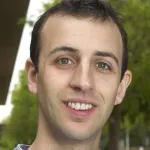
Adam de la Zerda - Associate Professor of Structural Biology and (by courtesy) of Electrical Engineering
Research interests: Histological haematoxylin and eosin–stained (H&E) tissue sections are used as the gold standard for pathologic detection of cancer, tumour margin detection, and disease diagnosis1. Producing H&E sections, however, is invasive and time-consuming. Non-invasive optical imaging modalities, such as optical coherence tomography (OCT), permit label-free, micron-scale 3D imaging of biological tissue microstructure with significant depth (1-2 millimeters) and large fields-of-view, but are difficult to interpret and correlate with clinical ground truth without specialized training. Our lab develops a virtual biopsy, using generative neural networks to synthesize virtual H&E sections from OCT images. We have demonstrated the core technology by converting OCT to histology images ex-vivo and are looking for experts to help push the technology forward either by building better machine learning models for tumor diagnosis or by developing the chemistry and biology required to bring this technology in vivo. This technology will enable physicians to readily incorporate OCT imaging into their clinical practice, circumventing the lengthy step of an invasive biopsy procedure. Check out the lab website!
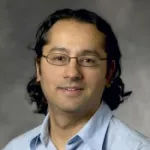
Tushar Desai - Associate Professor of Medicine (Pulmonary and Critical Care)
Research interests: The Desai lab is interested in lung biology, disease pathophysiology, and cell-based therapies, focused on lung stem cells, acute lung injury, Idiopathic Pulmonary Fibrosis, Cystic Fibrosis and lung adenocarcinoma. We develop and apply ex vivo approaches enabling functional studies of primary human lung cells, including organoids and intact lung slice cultures. We also employ in vivo mouse models for mapping the activity of transplanted human lung stem cells and advanced microscopy techniques for imaging individual cells in 3D. We welcome fellows interested in stem cells, lung biology, lung cancer, tissue staining, and advanced microscopy techniques. Check out Dr. Desai's profile!

Joseph DeSimone - Professor of Radiology (Molecular Imaging Program at Stanford/Nuclear Medicine) and of Chemical Engineering
Research interests: In 2015, the Desimone lab reported the invention of the Continuous Liquid Interface Production (CLIP) 3D printing technology (Science 2015), which overcame major fundamental limitations in polymer 3D printing and is now used commercially in diverse industries. Vast opportunities also exist to use CLIP to pursue next-generation medical devices and prostheses. For example, new design opportunities exist in device-assisted drug delivery, especially in oncology using iontophoresis (PNAS 2016), as well as in early detection, including to improve specimen collection, device performance (e.g. microfluidics, cell sorting, supporting growth and studies with human organoids), and imaging (e.g. PET detectors, ultrasound transducers). We are also interested in pursuing therapeutic devices in pediatric medicine to help advance treatments for conditions including cleft palate and plagiocephaly, as well as pursuing the design of a single-digit micron resolution printer to advance microneedle designs as a potent delivery platform for vaccines. Check out Dr. DeSimone's Stanford profile!
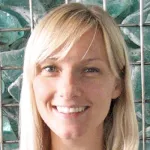
Laramie Duncan - Assistant Professor of Psychiatry & Behavioral Sciences
Research interests: The Duncan Lab is at the intersection of psychology, statistical genetics, and neuroscience. We use massive datasets and primarily computational approaches to identify risk factors and mechanisms contributing to mental health problems like schizophrenia and post-traumatic stress disorder (PTSD). Our current projects include 1) sex differences in PTSD and related disorders; 2) translation of schizophrenia genetic risk variants into biological mechanisms; 3) human postmortem tissue studies in schizophrenia; 4) sex hormones and other biomarkers for psychiatric disorders. Check out the lab website!

Shirit Einav - Associate Professor of Medicine (Infectious Diseases) and of Microbiology and Immunology
Research interests: The pathogenesis of SARS-CoV-2 infection remains poorly characterized, and there are no biomarkers associated with severe infection. This in part due to the limited understanding of the specific cellular targets of this virus in the human lung and in PBMCs. Moreover, the cellular and molecular factors that govern differential clinical outcomes across genders, age, ethnicities, etc are unknown. Lastly, while multiple host-targeted approaches are currently being studied for the treatment of COVID-19, potential differences in the interpatient susceptibility to these drugs have not been assessed. We have established a unique PBMC-supplemented lung organoids model derived from normal human tissue. This project’s main goal is to characterize viral infection, inflammation and tissue injury in this lung organoid model and use it to monitor the host response to SARS-CoV-2 infection at a single cell level, define the relevant target cells, and monitor response to representative host-targeted approaches. Check out the lab website!

Jesse Engreitz - Assistant Professor of Genetics
Research interests: The Engreitz Lab is mapping the regulatory wiring of the genome to understand the genetic basis of heart diseases. This wiring includes millions of enhancers that tune gene expression in the thousands of cell types in the body. Yet, it has been unclear which enhancers regulate which genes — a massive and complex network that rewires in each cell type. To understand this network, we invent new genomics tools combining CRISPR and single-cell approaches; dissect molecular mechanisms of enhancer-gene communication; build computational models to map genome regulation; and apply these tools to connect human genetic variants to biological mechanisms of disease. Check out the lab website!

Neir Eshel - Assistant Professor of Psychiatry & Behavioral Sciences
Research interests: The Stanford Translational Addiction and Aggression Research (STAAR) lab focuses on the neural circuits of reward, aggression, and the intersection between the two. Current questions include: What is the economic value of dopamine release? How do neuromodulators influence aggression? What are the neural circuits of frustration? To answer these questions, we pair the latest neuroscience methods (fiber photometry, optogenetics, electrophysiology) with carefully-controlled behaviors (operant conditioning, social interaction) and sophisticated analyses (economic demand curves, machine learning). There are many opportunities for postdoctoral research; check out our lab website or write Dr. Eshel to find out more!

Wendy Fantl - Assistant Professor (Research) of Urology
Research interests: The Fantl lab applies state-of-the-art multi-parametric single cell technology platforms; specifically, mass cytometry (CyTOF) and a new multiplex imaging platform called CODection by indEXing (CODEX), combined with machine learning analysis approaches to reveal new insight into the underlying biology of ovarian and kidney cancers that is clinically translatable. In our latest mass cytometry study, we demonstrated that a decidual-like (dl)-NK cell infiltrating newly diagnosed ovarian tumors correlated with tumor mass. dl-NK cells are distinguishable from other NK cell phenotypes by their expression of the tetraspanin CD9. We found that NK cells acquired CD9 by trogocytosis from ovarian tumor cells where it is abundantly expressed. Our data indicate that CD9 confers NK cells with immune-suppressive properties and that a blocking CD9 antibody reversed these immune-suppressive effects. Our results have immediate implications for NK immunotherapy. The motivated candidate continues these studies and examines the role of NK cells in ovarian cancers and expands the study to kidney cancer. Check out Dr. Fantl's webpage!

Polly Fordyce - Assistant Professor of Bioengineering and of Genetics
Research interests: The central focus of the lab is leveraging tools and ideas from physics and engineering to develop technologies for quantitative, high-throughput measurements of macromolecular interactions and their cellular consequences at unprecedented scale. Recent technological advances in genomics and proteomics have driven an explosion in our knowledge of the molecular parts within cells. Interactions between these parts drive all biological processes, and the strength of these interactions predicts the timing and identity of downstream responses. Therefore, quantitative biophysical and biochemical measurements are critical to decipher these networks, predict how they are disrupted in disease, and manipulate them for therapeutic purposes. Platforms include spatially-encoded arrays of reaction chambers for quantitative, high-throughput enzymology (HT-MEK), Spectrally-encoded hydrogel beads for quantitative multiplexed bioassays in a single small volume (MRBLEs), and ultra-high-throughput phenotyping and selection (Dropception). Check out the lab website!
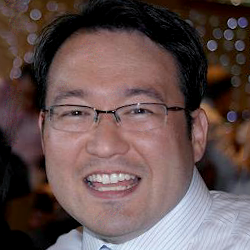
Richard Frock - Assistant Professor of Radiation Oncology (Radiation and Cancer Biology)
Research interests: Dr. Frock's group uses functional genomics to understand DNA double strand break (DSB) repair processes. They employ a state-of-the-art translocation sequencing platform that we are continually innovating, HTGTS, to map DSB junctions genome-wide. Dr. Frock's lab is particularly interested in how error-prone repair can be promoted over high fidelity repair and how these mechanisms can be exploited in non-cycling normal and cancer cells. To do this they use a variety of targeted DSB sources ranging from lymphocyte development (RAG1/2, AID) to engineered endonucleases (Cas9, TALEN) to detect off-target and other pathological DSBs (IR, ROS, nuclear process inhibitors, etc). Check out their lab website for more details!
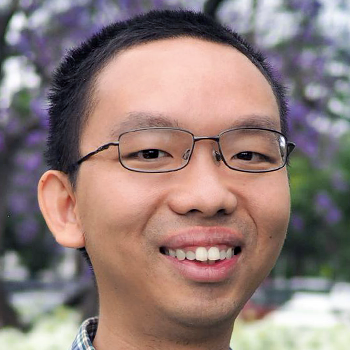
Xiaojing Gao - Assistant Professor of Chemical Engineering
Research interests: The Gao lab works on developeing mammalian synthetic biology as the next-gen biomedicine. They engineer biomolecules, molecular circuits, viruses, and cells, combining quantitative experimental analysis with computational simulation. The outcomes will contribute to not only specific biomedical applications but also the foundation for engineering mammalian biology. Check out the lab website!

Paul George - Assistant Professor of Neurology & Neurological Sciences
Research interests: Stroke is the leading cause of disability in the United States, drastically disrupting the lives of stroke survivors and their caretakers. The George Lab's research focuses on improving stroke diagnostics as well as engineering new methods to enhance stroke recovery. The lab's primary focus is applying novel bioengineering techniques to understand the mechanisms of neural recovery (primarily in stroke) and discovering methods to improve patient recovery. They use rodent models of stroke combined with biomaterial techniques, stem cell transplants, and microfabrication to achieve these aims and evaluate our methods with behavior testing and various imaging techniques. Please visit their lab webpage to find out more!

William Giardino - Assistant Professor (Research) of Psychiatry & Behavioral Sciences (Sleep Medicine)
Research interests: The Giardino Lab of Circuits & Systems Neuroscience in Stanford's Department of Psychiatry & Behavioral Sciences is currently accepting applicants for postdoctoral-level researchers. We aim to decipher the neural mechanisms underlying psychiatric conditions of stress, addiction, and sleep disturbances. Our work uses genetic, pharmacological, physiological, anatomical, optical, and computational approaches in freely-behaving mice to monitor, manipulate, and map the neural circuits, synapses, and signaling mechanisms driving approach/avoidance behaviors, drug-seeking, food intake, social interactions, sleep/wake cycles, and other arousal states. Research topics include Stress & Reward, Alcohol Addiction, Sex Differences, Wakefulness/Arousal, Neuropeptide Release & Signaling, and Feeding & Metabolism. Research Approaches include: Neuromodulation (optogenetics, chemogenetics), Neurophysiological recordings (fiber photometry, calcium imaging, EEG/EMG), Neurogenetics (CRISPR/Cas9 editing, Cre/loxP recombination, viral gene transfer, mouse genetics), Neuroanatomy (circuit tracing, immunohistochemistry, in situ hybridization, confocal & light sheet microscopy), Neuropharmacology (alcohol & drug self-administration, receptor mechanisms), Computation (neural circuit modeling, machine learning analysis of behavioral & physiological datasets), Behavior and Evolution (rodent model organisms, cross-species comparisons), and Translation (interdisciplinary and clinical collaborations, mental health treatment development). Check out the lab website!

Anna Gloyn - Professor of Pediatrics (Endocrinology) and (by courtesy) of Genetics
Research interests: The consistent focus of Dr. Anna Gloyn's research has been using naturally occurring mutations in humans as tools to identity critical regulatory pathways and insights into normal physiology. Her early post-doctoral research led to the identification a new genetic etiology for permanent and transient neonatal diabetes due to KCNJ11 mutations and resulted in one of the first examples of precision medicine, where the determination of the molecular genetic etiology lead to improved treatment options for patients. Dr. Gloyn's current research projects are focused on the translation of genetic association signals for type 2 diabetes and glyemic traits into cellular and molecular mechanisms for beta-cell dysfunction and diabetes. Her group uses a variety of complementary approaches, including human genetics, functional genomics, physiology and islet-biology to dissect out the molecular mechanisms driving disease pathogenesis. Projects in the “wet lab” use state-of-the-art technologies including CRISPR-Cas 9 genome editing in both human IPS cells for bespoke studies and coupled with high-throughput genome-wide screens of pancreatic beta-cell function whilst “dry lab” projects capitalize on the large in house (epi)genomic datasets the team have generated in human islets and beta-cell models of diabetes. Check out more on the lab website!

Natalia Gomez-Ospina - Assistant Professor of Pediatrics
Research interests: Dr. Gomez-Ospina is a physician-scientist and medical geneticist with a strong interest in diagnosing, managing, and treating genetic diseases. Dr. Gomez-Ospina is a true translational scientist. Her main goal is to improve the care and lives of patients with genetic disorders using the most efficient and direct approaches. Her research program is primarily focused on developing therapies for the largest class of neurodegenerative diseases in children known as lysosomal storage disorders. Her lab uses stem cells and genome editing as the primary tools to design and develop these therapies. The lab also aims to understand the fundamental biological process that will enable these therapies to become safer, and more effective. In addition to regenerative medicine, the lab collaborates to develop tools to serve patients with unmet needs. For example, the lab has an ongoing collaboration to create point-of-care testing for serum ammonia levels. Such a device will significantly improve the quality of life of children and families with metabolic disorders that manifest with elevations in ammonia levels. Check out the lab website!

Wendy Gu - Assistant Professor of Mechanical Engineering and (by courtesy) Materials Science & Engineering
Research interests: Dr. Gu is interested in discussing a project on programmable self-assembly of colloidal microparticles, in which particle shape is used to control assembly. The Gu Lab's approach uses two-photon lithography to make particles of arbitrary, complex shapes (tetrahedrons, tetrapods, screws, etc.), beyond what can be made using bottom-up chemical synthesis or traditional lithography. This allows us to study the interparticle forces that lead to self-assembly (e.g. lock and key assemblies), as well as make hierarchical materials with micro to macroscale features. Check out more on the lab website!

Sarah Heilshorn - Professor of Materials Science and Engineering and (by courtesy) of Bioengineering and of Chemical Engineering
Research interests: The Heilshorn lab develops new biomaterials to: create biomimetic culture platforms for human organ-typic cultures (e.g. organoids), develop tissue engineering scaffolds to promote healing, design injectable methods to deliver cell and drug therapies for regenerative medicine, study peptide and protein self-assembly into biomimetic structures, and develop platforms for biomanufacturing of cell-based therapies. Check out the lab website!
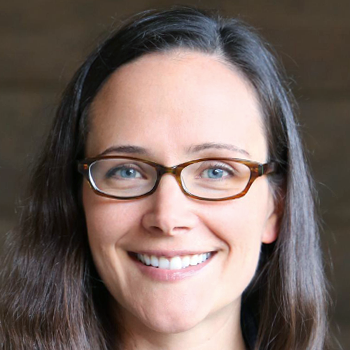
Brooke Howitt - Associate Professor of Pathology
Research interests: Dr. Howitt's research interests include the study of gynecologic cancers, integrating clinical, histologic, immunophenotypic, and molecular features together to better understand disease classification, prognostification, and progression. Specific interests include rare uterine sarcomas, fallopian tube epithelium as the source of ovarian high grade serous carcinomas, and endometrial carcinoma. Dr. Howitt is seeking postdoctoral fellows with some level of computational/bioinformatics expertise and knowledge of R and python required.

Haruka Itakura - Assistant Professor of Medicine (Oncology)
Research interests: The Itakura Lab is looking for a highly creative and motivated researcher to conduct applied research in the areas of machine learning and pattern/feature detection with a focus on computer vision/image processing and analysis orgenomic/molecular data processing and analysis. The objective for this research is to develop and apply computational frameworks for the integrative analysis of multi-omic biomedical data to accelerate discoveries in cancer diagnostics and therapeutics. The Itakura lab focuses on implementing machine learning frameworks and radiogenomic approaches on heterogeneous, multi-scale cancer data (e.g., clinical, imaging, histopathologic, genomic, transcriptomic, epigenomic, proteomic). Projects include prediction modeling of survival and treatment responses, biomarker (feature) discovery, cancer subtype discovery, and identification of new therapeutic targets. Guided by critical and relevant problems in oncology, these projects will have the potential to lead to clinically actionable or translatable findings. Check out Dr. Itakura's Stanford profile!

Theodore Jardetzky - Professor of Structural Biology
Research interests: The Jardetzky laboratory has ongoing projects to study the process of viral entry and antibody-mediated neutralization for a number of human pathogens, including coronaviruses (SARS-CoV2), herpesviruses (HCMV/EBV) and paramyxoviruses (RSV/HMPV/Nipah). We collaborate with leading immunology and virology laboratories and focus on providing a structural basis for understanding mechanistic aspects of viral entry and antibody interactions with viral entry glycoproteins using X-ray crystallography and cryo-EM. We are seeking postdoctoral fellows with backgrounds in biochemistry, immunology or structural biology to join this effort. Check out Dr. Jardetzky's Stanford profile!
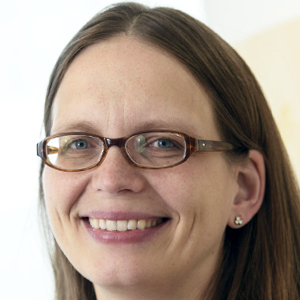
Julia Kaltschmidt - Associate Professor of Neurosurgery
Research interests: The enteric nervous system (ENS) in the gut presents a translational model relevant to many human illnesses, however, relatively little is known about the development, connectivity and function of ENS circuitry. The mouse ENS is experimentally tractable and allows application of molecular genetic and high-resolution imaging techniques, as well as innovative in vivo experimental approaches. The Kaltschmidt lab aims to (i) map ENS circuit connectivity and (ii) explore functional consequences of ENS circuit abnormalities. Check out the lab website!

Corey Keller - Assistant Professor of Psychiatry & Behavioral Sciences
Research interests: The overarching goal of Dr. Keller’s Laboratory is to improve brain stimulation treatment for neurological and psychiatric disease. Specifically, his lab seeks to improve Transcranial Magnetic Stimulation (TMS) and other brain stimulation techniques by better understanding the fundamental principles of human brain plasticity and building trans-diagnostic real-time monitoring platforms for personalized brain stimulation. TMS is a non-invasive brain stimulation technique focused on normalizing dysfunctional brain networks and is FDA-approved for depression, OCD, migraines, and smoking cessation, with clinical trials underway for PTSD, addiction, and Alzheimers. Unfortunately, TMS is typically applied in a one-size-fits-all manner without reference to one’s biology, and as such we are in critical need for a personalized and more effective approach. Dr. Keller performs translational research at the intersection of neuroscience, electrophysiology, brain stimulation, neuroengineering, psychiatry, and precision therapeutics. His work suggests that brain-based biomarkers may be used to predict non-responders to TMS treatment, monitor brain networks during intervention, and be used to propose novel targets and treatment paradigms. Dr. Keller emphasizes an environment conducive to team-based learning in order to train the next generation of clinically-informed circuit neuroscientists, question the status quo with rigorous scientific experiments, and make important contributions in understanding how brain stimulation alters neural circuits and behavior and translate these findings to develop targeted, personalized, and more effective treatments. Check out Dr. Keller's lab website!

Ron Kopito - Professor of Biology
Research interests: The Kopito Lab studies protein quality control (PQC) in the endoplasmic reticulum (ER) and its role in modulating diverse human diseases. We recently conducted a landmark genetic screen that identified a surprising connection between ER PQC and a novel protein modification system that conjugates the small ubiquitin-like protein UFM1 to ribosomes at the ER. We've identified a surprising role for this modification system in maintaining the integrity of protein synthesis in the secretory pathway and discovered an unexpected connections between PQC, ribosome biology and inherited hematological disorders. This research uncovers fundamental new cell biology and mechanisms of disease. Check out Dr. Kopito's lab website!

Ellen Kuhl - Professor of Mechanical Engineering and (by courtesy) of Bioengineering
Research interests: In the Living Matter Lab, we integrate physics-based modeling with machine learning and create interactive simulation tools to understand, explore, and predict the dynamics of living systems. We study the life cycle of the human brain, from development to aging, and the human heart, both healthy and diseased. In our most recent work, we use data-driven modeling to integrate classical epidemiology modeling and machine learning to infer critical disease parameters of COVID-19 from reported case data to make informed predictions and guide political decision making. Check out the lab website!
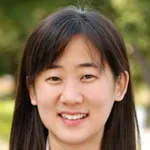
Jin Hyung Lee - Associate Professor of Neurology, of Neurosurgery and of Bioengineering and (by courtesy) of Electrical Engineering
Research interests: The Lee Lab uses interdisciplinary approaches from biology and engineering to analyze, debug, and manipulate systems-level brain circuits. We seek to understand the connectivity and function of these large-scale networks in order to drive the development of new therapies for neurological diseases. This research finds its basic building blocks in areas ranging from medical imaging and signal processing to genetics and molecular biology. Our lab is interested in understanding how the brain works at the systems level. Current projects include: Advanced MR Imaging Development, and Visualization of Global Brain Dynamics in Health and Disease. Check out the lab website!

Craig Levin - Professor of Radiology (Molecular Imaging Program at Stanford/Nuclear Medicine) and (by courtesy) of Physics, of Electrical Engineering, and of Bioengineering
Research interests: Multi-modality imaging of living subjects. The Levin Lab is looking for interested and motivated fellows to participate in the following research activities: 1. Exploring novel concepts in molecular imaging instrumentation, including design, construction, and characterization of new sensors and imaging systems. 2. Studying associated signal processing algorithms and computations, including tomographic image reconstruction, data correction, and machine learning. 3. Translating these novel imaging system technologies into clinical and/or preclinical studies involving the non-invasive characterization and quantification of the molecular pathways of disease.
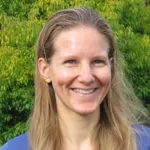
Merritt Maduke - Associate Professor of Molecular & Cellular Physiology
Research interests: Ion transport across the hydrophobic barrier of the cell membrane is a primary challenge faced by all cells. Such transport sets up and exploits ion gradients, thus providing the basic energy and signaling events that are the foundation of life. It is fascinating to study the molecular mechanisms of the proteins that catalyze this transport. Our lab uses a combination of biophysical methods to investigate membrane-protein structure and dynamics together with electrophysiological analyses to directly measure function to determine the molecular mechanisms ion channels and transporters. We apply this expertise in several interdisciplinary collaborations: to determine the physiological function of chloride channels in the brain, to develop therapeutics to treat hyponatremia, and to investigate the mechanism of ultrasound neuromodulation. Check out Dr. Maduke's lab website!

Robbie Majzner - Assistant Professor of Pediatrics (Hematology & Oncology)
Research interests: The Majzner lab focuses on the optimization of CAR T cells for the treatment of solid tumors. Interested post-docs/fellows will work on engineering CAR T cells better able to recognize low amounts of target antigen (to overcome tumor heterogeneity) and to discriminate between healthy and normal tissues. The project will draw on state of the art bioengineering to generate novel CAR T cell constructs with improved efficacy.

Alison Marsden - Associate Professor of Pediatrics (Cardiology) and of Bioengineering and (by courtesy) of Mechanical Engineering
Research interests: The Marsden lab is seeking fellows with interest in patient-specific modeling and simulation of blood flow and tissue mechanics in cardiovascular disease. We are developing methodology in advanced finite element simulations of blood flow, fluid structure interaction, nonlinear tissue mechanics, uncertainty quantification, machine learning for medical image processing, and optimization. Applications of our simulations include pediatric and congenital heart disease, coronary artery disease, and pulmonary hypertension. We work closely with the Stanford school of medicine on clinical applications, and we also uphold a culture of open source software and open data contributions. We are seeking candidates with a background in mechanical engineering, computational science, and biomechanics with an interest in interdisciplinary research. Check out the lab website!
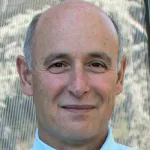
Mark Mercola - Professor of Medicine (Cardiovascular)
Research interests: Mercola Lab projects are focused on genetic cardiac (dilated, hypertrophic and restrictive) myopathies. Disease-in-dish human iPSC-based models are used in high throughput functional physiological studies capable of scanning the proteome for pathogenic mechanisms and potential drug targets. Translational studies advance candidate therapeutics through recursive cycles of chemical optimization and functional testing in human iPSC and animal models. Check out the lab website!

Ashby Morrison - Associate Professor of Biology
Research interests: The Morrison Lab is interested in chromatin-mediated mechanisms involved in genomic and metabolic stability. We utilize diverse approaches, including cellular, molecular and computational analyses, in our research. For studies related to genomic stability, we are investigating how tumor suppressors and oncogenes alter nuclear architecture to accelerate mutagenesis during cancer evolution. For studies related to metabolic stability, we are examining how histone modifications are altered in coordination with metabolic status to control transcription and proliferative capacity. Check out the lab website!

Lucy O’Brien - Assistant Professor of Molecular and Cellular Physiology
Research interests: The O'Brien Lab has a position available to investigate the cell dynamics that underlie renewal and remodeling of epithelial organs in vivo. Our goal is to understand real-time behaviors of stem cells and their progeny and how they are influenced by physiological signals and epithelial tissue architecture. Experimental strategies include Drosophila genetic manipulation, live animal imaging, computational image analysis, and modeling. Check out the lab website!

Daniel Palanker - Director of the Hansen Experimental Physics Laboratory and Professor of Ophthalmology and (by courtesy) of Electrical Engineering
Research interests: Dr. Palanker is working on optical and electronic technologies for diagnostic, therapeutic, surgical and prosthetic applications, primarily in ophthalmology. In the field of biomedical optics, these studies include interferometric imaging of neural signals, and laser-tissue interactions with applications to retinal laser therapy and to ocular surgery. In the field of electro-neural interfaces, Dr. Palanker is developing retinal prosthesis for restoration of sight to the blind and implants for electronic control of organs. Check out the lab website!

Sergiu Pasca - Associate Professor of Psychiatry and Behavioral Sciences
Research interests: Dr. Sergiu Pasca's laboratory at Stanford is interested in understanding the rules governing brain assembly and the mechanisms of neuropsychiatric disease. A critical challenge in understanding the intricate programs underlying development and dysfunction of the human brain is the lack of direct access to intact, functioning human brain tissue. Towards this, the lab developed and applied novel stem cell approaches and tools to recapitulate, probe and manipulate human brain development and assembly. The lab introduced the use of instructive signals for reproducibly deriving self-organizing 3D cellular structures named brain region-specific spheroids or organoids (Nature Methods, 2015; Nature Protocols, 2018; Nature Methods, 2019; Nature Neuroscience, 2019; Science, 2020). Moreover, the lab pioneered a modular system to integrate 3D brain region-specific organoids and study migration and neural circuit formation in functional preparations known as assembloids (Nature, 2017; Science, 2019). Current projects include developing next-generation organoid systems, uncovering the genetic and molecular mechanisms of neuropsychiatric disorders (Nature Medicine, 2020), including convergence of pathways in disease, and gaining insights into the unique molecular programs underlying human brain development.

Claudia Petritsch - Associate Professor (Research) of Neurosurgery
Research interests: Pediatric glioma comprise a heterogenous group of tumors, which makes designing preclinical models that represent individual subtypes important and consequential for personalized cancer medicine. The Petritsch Lab leverages direct access to neurosurgical tissue to generate patient-derived brain tumor models to study individual tumor types. We generate novel genetically engineered mouse models to target expression of known oncogenic drivers in pediatric glioma to various germinal and non-germinal areas, assessing neuro-anatomical aspects of oncogene sensitivity. Using cell-selective driver line, we investigate brain neural stem and progenitor cells as a likely origin for pediatric gliomas and therapy resistant glioma stem cells, developing models that faithfully recapitulate human tumor development. In immunocompetent, orthotopic mutant glioma model derived from endogenous tumors we assess sensitivities to standard and novel therapies, allowing us to define mechanisms for therapy resistance. In syngeneic, orthotopic gliomas, we define therapy-induced-changes in the tumor microenvironment, including the immune infiltrate, and investigate immune modulatory therapy as novel treatment strategy for children with gliomas. Check out the lab website!

Manu Prakash - Associate Professor of Bioengineering
Research interests: We are a curiosity driven lab focused on physical biology and frugal science - in an attempt to understand the elegance of beauty of biological systems and solve planetary scale challenges via simple, frugal solutions in healthcare and ecological monitoring. See publications for details. Check out the lab website!

Zachary M. Sellers - Assistant Professor of Pediatrics (Gastroenterology)
Research interests: The Sellers laboratory is focused on understanding epithelial biology and ion transport, with a particular emphasis on how diseases, such as cystic fibrosis, inflammatory bowel disease, and pancreatitis, may impact epithelial ion transport processes. They primarily use human tissue and patient-derived 2D epithelium and 3D organoids in a spectrum of molecular and cell biology, electrophysiology, and microscopy techniques to better understand health and disease pathogenesis. The lab is interested in researchers excited about pushing the boundaries of existing knowledge on intestinal epithelial function and desiring to make an impact on human disease through biomedical research. Check out the lab website!
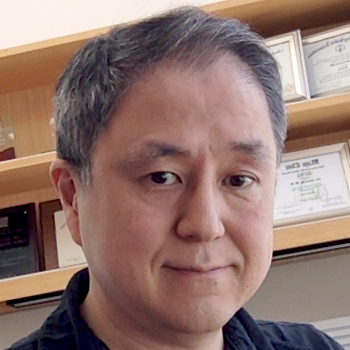
Gen Shinozaki - Associate Professor of Psychiatry & Behavioral Sciences
Research interests: Our lab is using an epigenetics approach to better understand the pathophysiological mechanism of delirium, especially postoperative delirium. As aging is the key risk factor of delirium, we are investigating how genome-wide DNA methylation landscape is changing along with aging to exhibit vulnerability to neuroinflammation and subsequent delirium presentation. As delirium causes long term cognitive decline leading to neurodegeneration processes such as dementia, better understanding delirium pathophysiology can lead to better therapeutics for dementia as well. We are using both clinical human samples as well as mouse models to address these important scientific questions. We welcome motivated and creative mind to join our team! Check out the lab website!
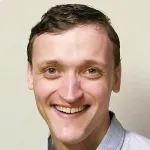
Mark A. Skylar-Scott - Assistant Professor of Bioengineering
Research interests: The Skylar-Scott laboratory is developing technologies to advance whole organ engineering: How can we grow hundreds of billions of cells, and assemble them rapidly into functional and vascularized tissues? Our laboratory is developing a range of technologies in wetware, software, and hardware by combining stem cell engineering, 3D bioprinting, and tissue vascularization and perfusion. Check out the lab website!

Randall Stafford - Professor of Medicine (Stanford Prevention Research Center)
Research interests: Dr. Stafford's research centers around the development of health, wellness or prevention. His lab aims to advance scientific understanding of the forces that influence physician and patient behavior, with a focus on evaluating and modifying physician and patient practices to improve health outcomes through prevention. The process by which new medical practices and knowledge are disseminated often fails to serve the best interests of patients. Frequently, new practices are readily adopted without adequate assessment. Paradoxically, other practices with strong evidence-based support are adopted only slowly and then inconsistently. By understanding the determinants of health behaviors, specific factors that facilitate or impede the adoption of appropriate new practices can be identified. These issues are critical to the future of medicine. Check out here for more information!

Tanya Stoyanova - Assistant Professor of Radiology
Research interests: The Stoyanova lab develops new early cancer detection methods and therapeutic strategies for late-stage cancers. The current research focus is on protein-based biomarkers for early cancer detection as well as development of new small molecule inhibitors and antibody-based therapies for epithelial cancers. The ultimate goals of the laboratory are to improve the early diagnosis and prognosis of clinically significant cancers and guide the development of novel and effective therapeutic strategies for metastatic cancers. Check out the lab website for more information!

Natalie Torok - Professor of Medicine (Gastroenterology & Hepatology)
Research interests: The Torok lab focuses on liver fibrosis, studying interactions between metabolic dysregulation and ECM. We have many translational aspects, including new diagnostics/drug development for non-alcoholic and alcoholic steatohepatitis, and primary sclerosing cholangitis. Check out Dr. Torok's profile for more information!

PJ Utz - Professor of Medicine (Immunology & Rheumatology)
Research interests: The Utz lab focuses on the immune system of patients with immunodeficiency disorders, infections, and autoimmune diseases such as systemic lupus erythematosus (SLE), rheumatoid arthritis (RA), systemic sclerosis (scleroderma), myositis, primary biliary cirrhosis (PBC), Sjögren's disease, insulin dependent diabetes (type I diabetes or IDDM), multiple sclerosis (MS), inflammatory bowel disease (IBD), Castleman’s disease, and mixed connective tissue disease (MCTD). We develop bench-to-bedside technologies, including diagnostics and therapeutics, for human immune diseases. Our lab is also active in vaccine biology, both for inducing protective immunity to pathogens and for turning off immune responses in autoimmune diseases. We have recently pivoted efforts to study SARS-CoV-2, testing the hypothesis that the virus causes autoimmunity. Check out the lab website!

Matthew Wheeler - Assistant Professor of Medicine (Cardiovascular Medicine)
Research interests: The Wheeler Lab would be interested in mentoring a fellow in the areas of multiomics data analysis or structural genetic variation detection optimization. We have well-funded bioinformatics projects and a wealth of multiomic data from the Molecular Transducers of Physcial Activity Consortium and from the Center for Undiagnosed Diseases at Stanford. The ideal fellow will have a background in biostatistics or computational biology, although fellows with prior work in a wet lab environment who desire additional experience in bioinformatics would also be considered. Our group includes bioinformaticians, software developers, clinician-scientists, postdoctoral fellows, and research genetic counselors and emphasizes both personal and professional diversity. Depending on the project selected, one or more collaborating faculty members in Statistics, Computational Biology, Pathology or Biomedical Data Sciences would be included in the mentorship team. Check out Dr. Wheeler's Stanford profile!

William Weis - Professor of Structural Biology, of Molecular and Cellular Physiology, and of Photon Science
Research interests: We study the molecular mechanisms of cellular adhesion, cell polarity, and Wnt signaling, using an interdisciplinary approach that combines biochemical reconstitution, molecular structure and biophysical analysis. Our specific areas of interest are: 1) Cadherin-based cell-cell adhesion, where we seek to understand the structural basis of force-dependent molecular interactions that enable cell-cell junctions to respond to mechanical forces, and how incorporation of different proteins and post-translational modifications tune mechanical responsiveness. 2) Wnt signaling, where want to understand how binding of Wnt growth factors to their receptors is transduced into stabilization of the transcriptional co-activator beta-catenin, and the mechanism beta-catenin destruction in the absence of Wnts. 3) The molecular basis of apical-basal polarity establishment and maintenance. Check out the Structural Biology homepage!

Ellen Yeh - Associate Professor of Pathology and of Microbiology & Immunology
Research interests: The Yeh lab investigates the protozoan parasite Plasmodium spp that causes malaria and its origins from photosynthetic algae, leading to the identification of new antimalarial compounds targeting Plasmodium's plastid organelle. In addition to their impact as pathogens, little-studied protists also have huge impact on planet health. We are starting several new projects focused on algal relatives of Plasmodium for biofuels and as part of bio-based, sustainable economy. Please contact Dr. Yeh to discuss these exciting new directions! Check out Dr. Yeh's lab website!
